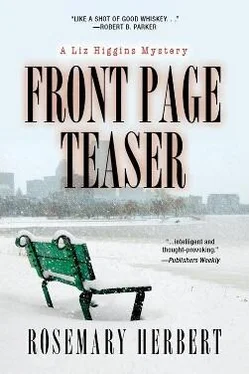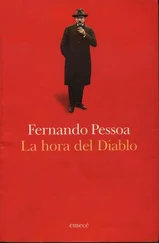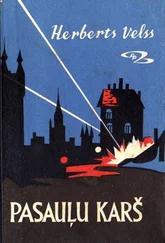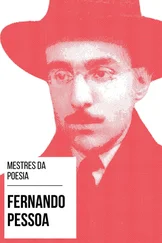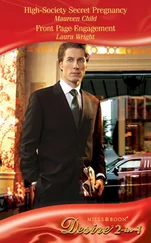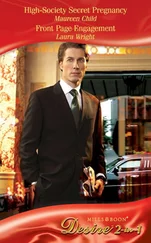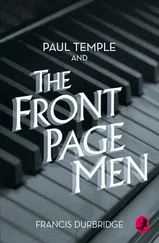Riding the escalator to the newsroom’s lobby, side-by-side with the doctor, Liz remembered the redhead in the bar.
Apparently, Cormac was not put off by Liz’s perplexed expression.
“Deadlines become you,” he said.
Olga Swenson was sitting in her car when Liz startled her by tapping on the older woman’s steamy window. Without a word, Olga led Liz into the house on Fenwick Street. Standing aside to let Liz enter first, she let out a sigh. With some surprise, Liz noticed the smell of alcohol on Olga’s breath.
Olga did not take off her coat but led Liz straight up to Veronica’s bedroom. A scrap of yellow “CRIME SCENE” tape provided the answer to Liz’s unasked question: “How did Mrs. Swenson know the stripped wallpaper was the work of the police?”
Inside the room, everything was in disarray. Plastic sheeting covered a bed heaped with stuffed animals and dolls, while trash bags appeared to be stuffed with other trinkets and toys.
“Veronica loved her Madeline wallpaper,” Olga said. “We purchased it for her when she was five. I’m not sure we could find it again if we tried. Hasn’t she suffered enough without having her room vandalized by the authorities?” She sat down heavily on the only available piece of furniture in the room, a child-sized wooden chair. “Why would they do this?” she nearly sobbed.
As Liz moved to crouch down beside Olga, she realized she must have set this destruction in motion by reporting Veronica’s unusual request: “Please, Santa, bring me new wallpaper.” The police must be grasping at straws to regard that report as significant.
Crouching, with tears in her eyes, Liz took Mrs. Swenson’s hands in her own but could not admit she knew the answer to the question. “I will do everything I can to find more of that wallpaper for you,” she promised. Standing, she pulled the older woman to her feet, then picked up a sizeable scrap of the paper from the floor. “Let’s make some tea and look over that book list,” she suggested.
In the kitchen, Olga seemed to gather herself together, as she prepared coffee rather than tea. “I just can’t think of using those teacups,” she said. She did not take off her coat.
Meanwhile, Liz studied the list, which recorded three months of Ellen’s borrowing records. Most titles were followed by the author’s name, a call number, and two dates, presumably indicating the date borrowed and date returned. In four cases, there was no return date. And, in the case of the children’s book, there were three renewals. Liz turned her attention to the titles and authors:
The Friends of the Environment New Car Buying Guide by Harold Gold
The Consumer Guide to New Car Ratings 2000
Silent Knights by Josephine Henshaw
Private Schools in Massachusetts: 1974 by the Private Schools Consortium
How to Be a Perfect Stranger , edited by Stuart M. Matlins
You Can Speak Arabic Program: Level One by Ahmed Sulieman
Understanding Speech Impediments by Gareth Weiner
Charlotte’s Web by E. B. White
Everyday Life in Palestine by Nadia Mafouz
How to Disappear Completely and Never Be Found by Sara Nickerson
Christmas Cookie Recipe Round-Up by Caroline Frost
Lowering the list and lifting her eyes to meet the older woman’s, Liz said softly, “Mrs. Swenson, I must ask, are you surprised by the contents of this list?”
Unwilling to speak, Olga nodded. Then she shook her head. Signaling Liz to remain seated, she stepped into the living room and then returned with a small stack of books including all but one of the books that were noted as not yet returned. The title How to Disappear Completely and Never Be Found seemed to describe the state of the only book from Ellen’s list that remained unaccounted for.
“I found this on the floor in Veronica’s room,” she said, lifting the copy of Charlotte’s Web . “The rest were on Ellen’s night table,” she added, pointing to the others. “Take them if you like. For now, I need to go home and collect myself.” Her tone was steely.
“Please help me just a bit more,” Liz begged.
But Mrs. Swenson shook her head
“Think of Ellen . . . ,” Liz pleaded.
“What do you think I’m doing, every minute of every day?” Olga snapped. She stood up and extended her arm to indicate that Liz should lead the way out of the house.
“I hope you believe I mean to find your daughter.”
“Please!” Olga said, slamming Ellen’s front door. Striding down her daughter’s front walk, she fumbled her car’s lock, muttered a curse, got into her car, and drove off without a backward glance.
Standing on the sidewalk, Liz folded the list of books and tucked it into her purse. Then she stood still for a moment, regarding the piece of wallpaper in her hands. Damp and torn, it depicted twelve little girls in two perfect lines, and the last of them all was Madeline. The troublemaker. Liz knew it was time to find the Wharton Alternative School’s equivalent of Miss Clavel.
It was just a few minutes past two o’clock when Liz rang the doorbell of Dr. Mayhew’s Brookline home. Standing across the street from a park graced with leafless weeping willow trees, the brown-stained, wood frame house appeared to have been built during the first years of the twentieth century. Its furnishings dated from the middle of that same time period, Liz noticed, as the former headmaster ushered her through his living room into his den.
“Bachelor housekeeping,” he said apologetically, as the pair passed stacks of books and papers in the living room. He spoke in the booming tones of a man who is hard of hearing.
“Looks more like scholarly housekeeping to me,” Liz said, matching his volume.
“You’re too kind. I wish I could call myself a scholar. When I retired from Wharton, I had great hopes of writing a truly worthwhile study, but I suppose that was just another case of ‘the best-laid plans of mice and men.’ Please sit down, Miss Higgs.”
“I’m afraid I didn’t speak clearly enough on my phone message. It’s Higgins, Liz Higgins.”
“Nonsense! If I’m going to be of any use to you, let’s be honest. I didn’t get your name right because I couldn’t hear it! Now, how can I help you?”
“All right, I will be honest, then, too. I’m here for two reasons. One is to get some background for a story I’m writing on New Year’s Resolutions. Later today I shall be interviewing DYS-incarcerated girls about their resolutions and how likely they think they are to see them through.”
“And, I take it, you want me to tell you what I’ve learned along these lines with my students. It’s a dull question, but I’ll help you. Nevertheless, I’m no fool. You’re really more excited about learning something else from me aren’t you? So why don’t we begin with that?” Dr. Mayhew said, smiling.
“You’re right. I’m looking for a past student of yours, sir. His name is Al Leigh.”
“Say again?”
Liz raised her voice and enunciated carefully. “Al Leigh. L, E, I, G, H.”
“I could hear you all right. But I can’t call to mind anyone named Leigh, Al or otherwise.”
“I’m told he was perhaps Hispanic, despite the surname. Perhaps his full first name was Alberto or Alfredo? He would have been a student in 1973.”
“No. No Albertos or Alfredos come to mind. Hmm, 1973. Just before the school closed. Al Leigh.” Dr. Mayhew shook his head and said again, “Al Leigh.” Then he exclaimed, “Ali! Of course you must mean Ali. Olive-skinned Ali. Oh, what was his last name? He didn’t belong in the company of those troublemakers. His only problem was his tongue.”
Читать дальше
